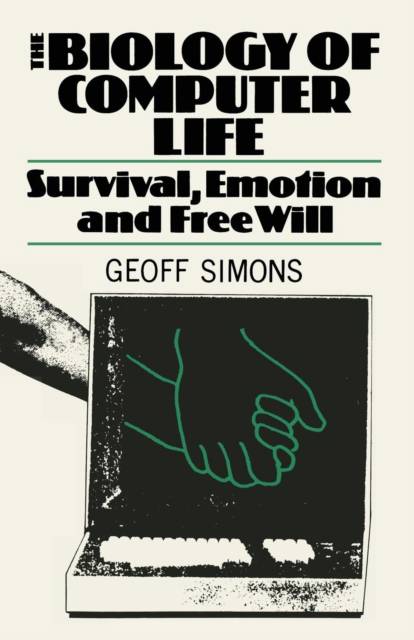
Bedankt voor het vertrouwen het afgelopen jaar! Om jou te bedanken bieden we GRATIS verzending (in België) aan op alles gedurende de hele maand januari.
- Afhalen na 1 uur in een winkel met voorraad
- Gratis thuislevering in België
- Ruim aanbod met 7 miljoen producten
Bedankt voor het vertrouwen het afgelopen jaar! Om jou te bedanken bieden we GRATIS verzending (in België) aan op alles gedurende de hele maand januari.
- Afhalen na 1 uur in een winkel met voorraad
- Gratis thuislevering in België
- Ruim aanbod met 7 miljoen producten
Zoeken
€ 76,95
+ 153 punten
Omschrijving
The doctrine of computer life is not congenial to many people. Often they have not thought in any depth about the idea, and it necessarily disturbs their psychological and intellectual frame of reference: it forces a reappraisal of what it is to be alive, what it is to be human, and whether there are profound, yet un- expected, implications in the development of modern com- puters. There is abundant evidence to suggest that we are wit- nessing the emergence of a vast new family of life-forms on earth, organisms that are not based on the familiar metabolic chemistries yet whose manifest 'life credentials' are accumulating year by year. It is a mistake to regard biology as a closed science, with arbitrarily limited categories; and we should agree with Jacob (1974) who observed that 'Contrary to what is imagined, biology is not a unified science'. Biology is essentially concerned with living things, and we should be reluctant to assume that at anyone time our concept and understanding of life are complete and incapable of further refinement. And it seems clear that much of the continuing refinement of biological categories will be stimulated by advances in systems theory, and in particular by those advances that relate to the rapidly expanding world of computing and robotics. We should also remember what Pant in (1968) said in a different context: 'the biological sciences are unrestricted . . . and their investigator must be prepared to follow their problems into any other science whatsoever.
Specificaties
Betrokkenen
- Auteur(s):
- Uitgeverij:
Inhoud
- Aantal bladzijden:
- 236
- Taal:
- Engels
Eigenschappen
- Productcode (EAN):
- 9781468480528
- Verschijningsdatum:
- 24/04/2012
- Uitvoering:
- Paperback
- Formaat:
- Trade paperback (VS)
- Afmetingen:
- 140 mm x 216 mm
- Gewicht:
- 294 g

Alleen bij Standaard Boekhandel
+ 153 punten op je klantenkaart van Standaard Boekhandel
Beoordelingen
We publiceren alleen reviews die voldoen aan de voorwaarden voor reviews. Bekijk onze voorwaarden voor reviews.












